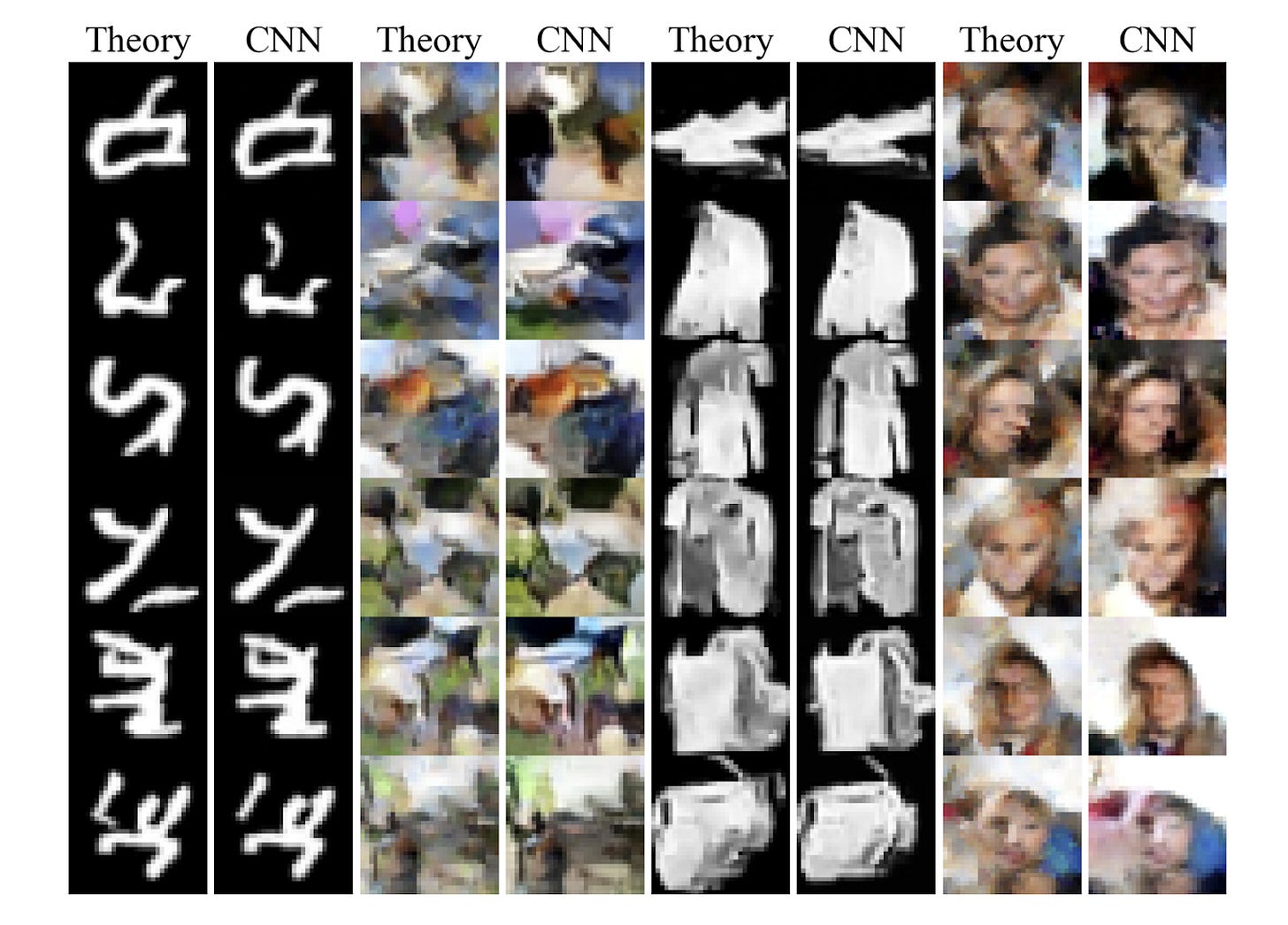Just One More Bigger Collider, Bro
I had an interesting discussion about CERN's plans for a bigger collider with particle physicist Harry Cliff, moderated by Philip Halper. You can watch it here:
AI Image Creation is Surprisingly Predictable

A team of AI researchers have reported that image creation with diffusion models can be predicted to high accuracy with an analytic computation that requires no training, given the same initial seed and access to training images. Diffusion models are a type of neural net similar to large language models, but they seed an image with random noise and then assemble pixels from what they have learned during training. The new study suggests that there are underlying regularities in this process that we so far haven’t appreciated. That said, the case that was studied in the new paper used only very small images, and the commercially available image generation models are much more complicated than the examples they looked at. Paper here.
Finally an Explanation for the Atlantic Cold Blob?
The North Atlantic Ocean has a patch of water that is about 0.3°C colder than the surrounding area down to a depth of 3km, a fact that has puzzled scientists for more than 50 years. Various explanations have been proposed, ranging from cloud cover to wind patterns to ocean currents. Climate scientists now blame the cold spot on the weakening of the Atlantic Meridional Overturning Circulation (AMOC), an ocean current which is responsible for the comparably mild climate in central and Northern Europe. They ran various computer models and found that only those with the weakening AMOC were compatible with the observations.
Implicitly, this is more evidence for the weakening of the AMOC. That the AMOC might entirely shut down is one of the most discussed climate tipping points. The result could be a sharp drop in winter temperatures in parts of Europe of as much as 10°C. Paper here, press release here.
AI Predicts Human Behavior
AI researchers trained a large language model on a huge dataset (Psych-101) with information from over 60,000 people making millions of choices across 160 experiments. They found that the model was able to outperform all previous models of human behavior, even for new scenarios it hasn’t seen before. This slightly creepy finding foreshadows just how well AI will be able to predict our every-day choices if we interact with them daily. Paper here, press release here.






